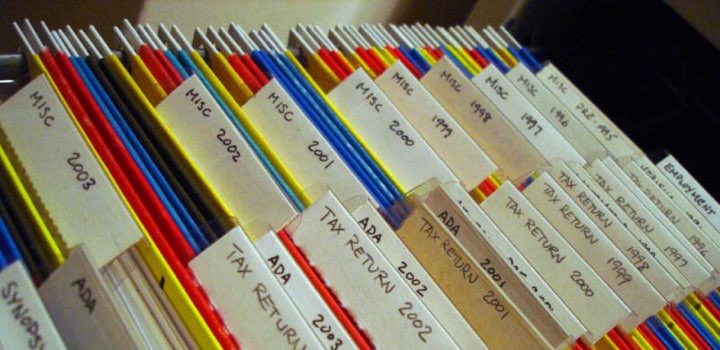Court Orders Studios to Turn Over Documents
Table of Contents
See also: Motion to Compel Discovery
In a decision issued just hours after a hearing, Federal Magistrate Judge Charles F. Eick ordered CBS and Paramount to give Axanar’s attorneys documents the studios had so far resisted turning over in discovery.
In his order issued October 21 Eick told the studios’ attorneys they must accede to a number of the requests for documents made by the defendants in a recent Motion to Compel Discovery. He gave the studios an October 28 deadline to comply; the deadline for completing discovery was November 2.
On Twitter, Axanar producer Alec Peters, a named defendant, called the order “a big win in court today.” His surrogate’s blog, Fan Film Factor, summed it up like this:
DOWNLOAD Judge Eick’s order on the defense motion to compel discovery. Also: Defense attorney Erin Ranahan‘s request for a transcript of the October 21 hearing on the motion.
“Axanar got pretty much everything they wanted and the studios are going to have a very busy week ahead. … [It’s] a big win for Axanar during the discovery phase. The actual trial is completely separate, but for right now, the defense is going to have a very happy weekend.”1)
However, with the exceptions in discovery requests listed below, the order officially denied the defense motion to compel discovery.2)
Withdrawals and Exemptions
The judge’s order formally noted what was reported last week that Axanar’s attorneys had withdrawn the part of the motion challenging the studios' chain of title to the ownership of Star Trek’s copyrights, as well as the defense’s complaint that plaintiffs’ attorneys had mischaracterized when the parties had met to confer about discovery.
ATTORNEY-CLIENT PRIVILEGE allows a client to prevent disclosure of confidential communications between client and attorney. It is one of the oldest recognized privileges for confidential communications, intended to encourage clients to make full disclosures to their attorneys, who are then better able to provide candid advice and effective representation.3)
The order exempted the required studio documents covered under attorney-client privilege but rejected the plaintiffs’ general objection that the defense requests were “overbroad, unduly burdensome” and that the records being sought “are not relevant to any party’s claim or defense.”4)
Privilege Log
Even though their attorneys may claim that many studio documents fall under the protection of attorney-client privilege, Eick ordered the plaintiffs to produce a privilege log specifically identifying all documents withheld under claim of attorney- client privilege. The defense would then be able to challenge withholding of any particular document.
What the Plaintiffs Must Turn Over
The judge’s order goes on to specify what documents, communications or witnesses plaintiffs must produce that had been requested by the defense in the following areas:
Axanar's Commercial Impact
Specifically, the court ordered the plaintiffs to supply:
- All records the studios may have relating to the commercial impact of fan films on the studios’ Star Trek property. The defense originally sought records regarding all fan films, not just ones inspired by Star Trek, but Eick limited the request only to infringed Star Trek works specified in the studios’ legal complaint.
- Documents and communications demonstrating how both the market for Star Trek has been affected by Axanar, and its actual financial impact (“or lack thereof”) on the studios’ business.
- A limited summary showing only the studios’ revenues and profitability related to Star Trek since 2009. The defense had wanted every document related to Star Trek’s profitability, revenue, ticket sales and product sales.
Fan Films
Eick also required CBS and Paramount to produce the following documents, but only affecting the time period since 2009.
- Fan Films Since 2009 All non-privileged documents relating to Star Trek fan films, but only since 2009, the year the rebooted Star Trek motion picture, produced by J.J. Abrams, was released. Defendants had sought documents prior to 2009.
EXEMPT DOCUMENTS It should be noted that a large number of documents sought by the defense about legal action against fan films are likely to be covered by attorney-client privilege.
- Legal Action Against Fan Films Documents referring to the studios’ decision whether to pursue legal action against fan productions, including takedown notices on platforms like YouTube, cease and desist letters (C&Ds), and legal complaints with respect to a long list of fan films enumerated in the motion. Eick’s order limited the required documents to only those since 2009 not covered by privilege.
VULCAN SCENE No takedown order was ever issued by the studios for Prelude or the Vulcan Scene. Axanar itself voluntarily took down the Vulcan Scene, and then, ironically, issued takedown orders claiming copyright infringement when copies of the scene were posted by others. That order was successfully challenged and the Vulcan Scene remained on YouTube.
- Axanar Takedown Notices Documents and communications about whether the studios contemplated sending a DMCA takedown notice to YouTube or other online hosts regarding the short film, Prelude to Axanar or the so-called “Vulcan Scene.” Eick’s order limiting the documents to those not covered by attorney-client privilege would apply to these documents as well.
- Fan Film Guidelines Documents related to any fan film guidelines considered by the studios, including research, analysis, or communications. To the extent such documents involved legal issues, attorney-client privilege could well apply here, too.
J.J. Abrams and Justin Lin
Notably, the judge allowed the defense request for records regarding the May 20, 2016, statements made by Star Trek producer J.J. Abrams and director Justin Lin at a publicity event for Star Trek Beyond, specifically relating to Abrams’ comments supporting Axanar as a fan production and claiming that “within the next few weeks, it will be announced this [lawsuit] is going away” so that “fans would be able to continue working on their project.”5)
'Common Interest' Privilege
However, as with the other documents, the court order exempted documents covered by attorney-client privilege, which is what the plaintiffs largely claimed explained their refusal to provide the documents in the first place. Given the plaintiffs’ assertion that documents on this topic were privileged under the ”common interest“ doctrine, this part of the discovery motion could continue to be disputed.
Harm and Injury
Eick also ordered the plaintiffs to provide written responses to questions posed by the defendants regarding:
- HARM The injury the studios claim to have suffered as a result of Axanar’s actions.
- DAMAGES A computation of the damages claimed for each cause of action in the lawsuit.
Actual vs. Statutory Damages
Under copyright law, however, the studios can elect to specify the basis on which they want to calculate damages against Axanar. Plaintiffs can opt for either actual damages caused by the alleged infringement, which would be supported by the kinds of records the defense was seeking in discovery, or statutory damages of $150,000 per instance of infringement.
Producing Witnesses
The judge granted the defense request for the studios to produce witnesses for deposition who could discuss communications between the studios, J.J. Abrams and Justin Lin regarding fan films generally, the lawsuit, and Axanar. Those witnesses could well include Abrams and Lin themselves.
At such depositions, however, it is likely the plaintiffs will object to specific questions requiring information protected by attorney-client privilege.
Willful Infringement
Defendants claim communications with Abrams and Lin are directly related to the studios’ allegation that Axanar and Peters willfully infringed on Star Trek copyrights, and that access to those communications would support the defense claim that Axanar was being produced under copyright law’s fair use exemptions, that the studios had somehow waived their copyright.6)
Other Promised Records
Finally, Eick ordered the plaintiffs to comply with all discovery-related promises previously made to defendants.
What the Judge Denied

Despite what the defense successfully gained by the order, the judge turned down several of their requests:
- FINANCIAL INFORMATION The defense lost its request for records of expenditures related to promotion or production of any Star Trek copyrighted works, including salaries paid to directors, producers, actors, and all others involved in the promotion or production the works.
- STAR WARS The defense wanted any CBS or Paramount records referring to Star Wars fan films and Lucasfilm’s stance toward fan films.
- TAKEDOWN POLICY While the defense won documents related specifically to contemplated takedown notices for Prelude to Axanar and the Vulcan Scene, the court order did not grant the request for documents about the studios’ general policies regarding sending DMCA takedown notices, even beyond Star Trek.
- FAIR USE TAKEDOWNS The defense had sought documents regarding the studios’ policies toward works for which they might issue a takedown notice that may have constituted fair use. The plaintiffs had previously stated it promised non-privileged materials regarding DMCA takedown policies for fan films, “which should be sufficient for defendants.”7)
Stance Toward Other Fan Films
In resisting the broader requests regarding their takedown policies, CBS and Paramount had argued that Axanar had “failed to establish how [the studios’] pursuit or lack of pursuit of legal action against other potentially infringing works is relevant, and have not provided any authority that supports their position.8) 
Keywords



